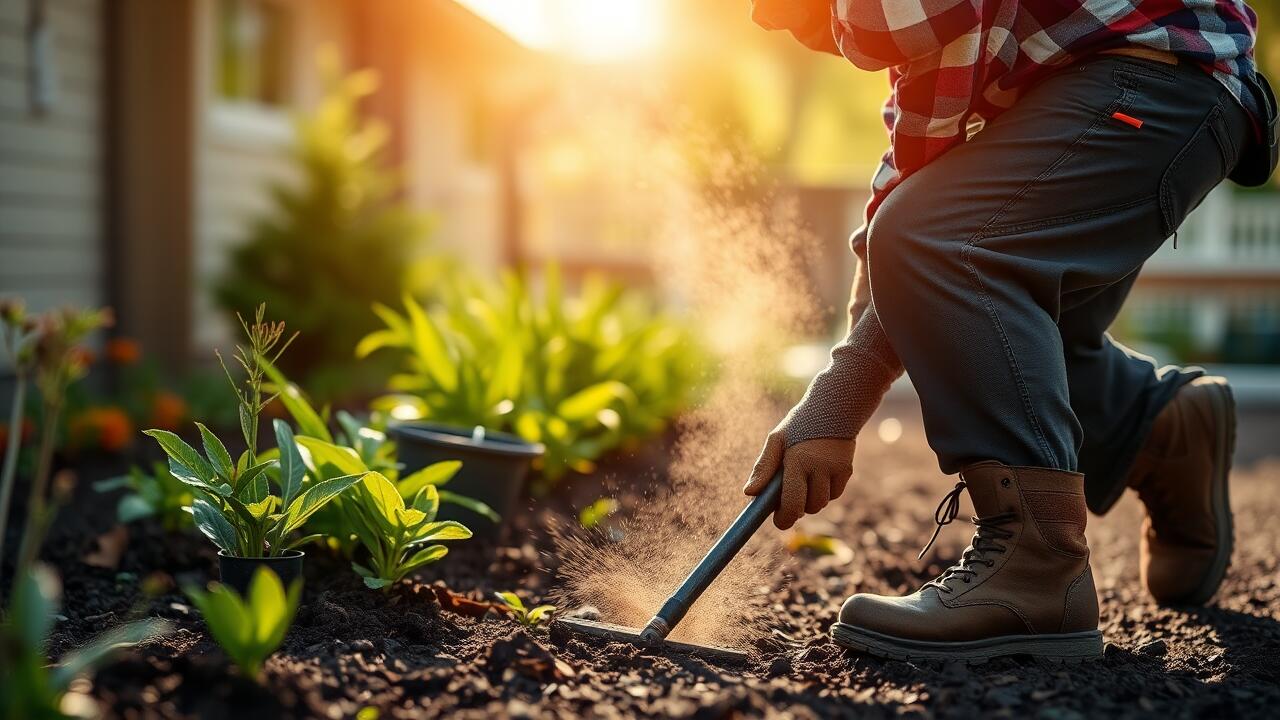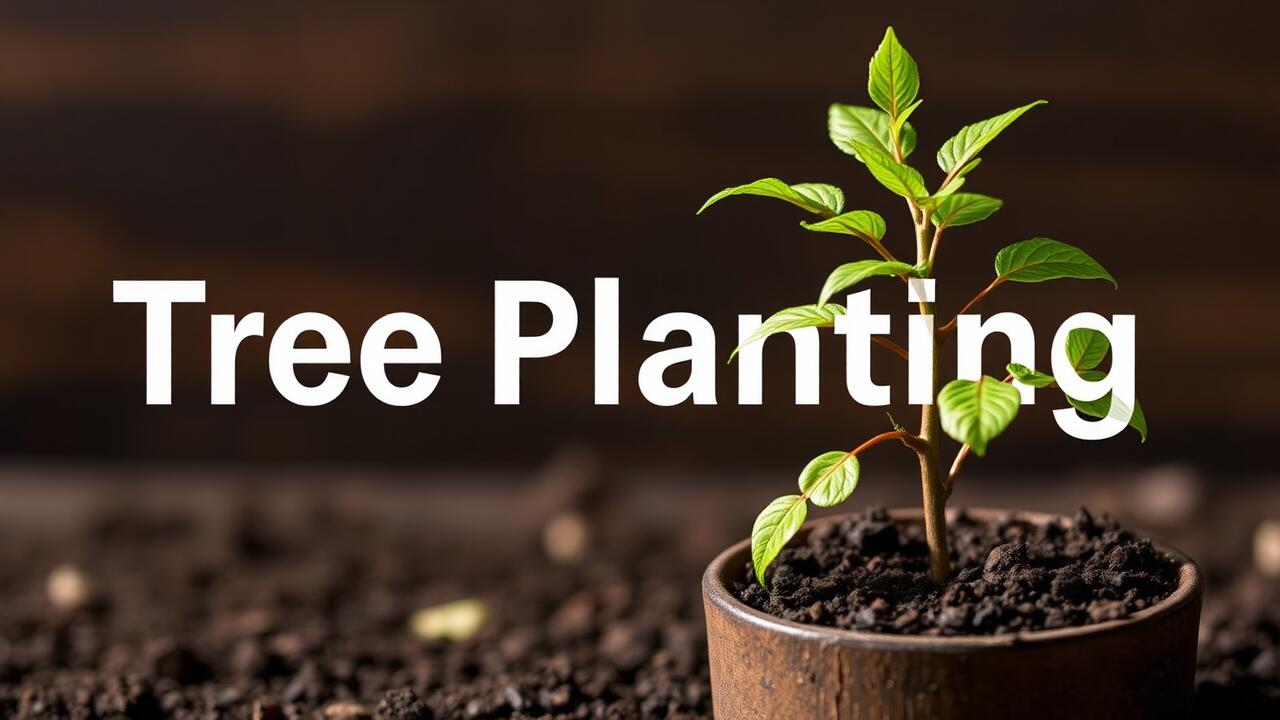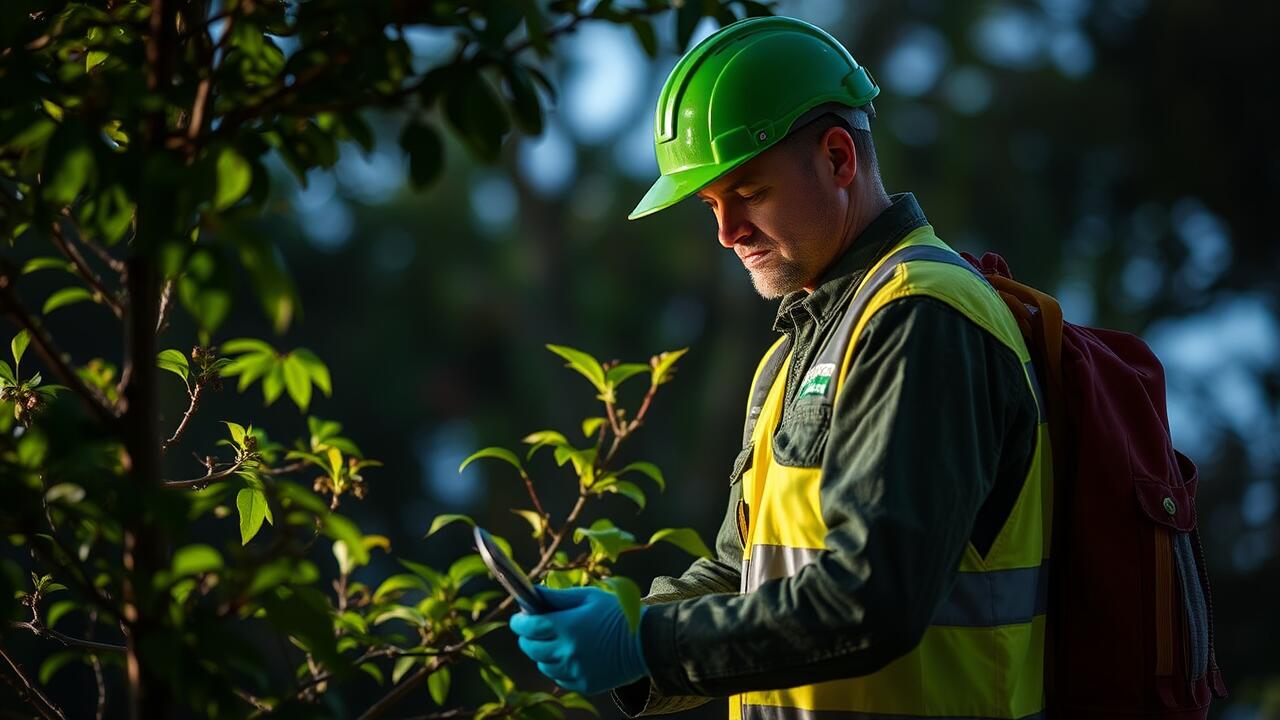
Seasonal Planting Guidelines
Understanding the seasonal planting guidelines is crucial for anyone gardening in Akron, Ohio. The region experiences a humid continental climate, which influences the timing and types of plants that can thrive. Spring and fall are generally seen as the best seasons for planting due to milder temperatures that allow plants to establish roots effectively before extreme summer heat or winter cold sets in.
For those interested in Tree Planting Akron, Ohio, knowing the average date of the last frost in spring and the first frost in fall is essential for timing. This knowledge ensures that saplings are planted at an optimal time for growth, reducing the risk of frost damage and helping them to flourish. Additionally, fall planting can be particularly advantageous as it gives trees time to settle in before the winter months, promoting healthier growth in the spring.
Best Times to Plant in Akron
Understanding the best times for planting in Akron involves considering the local climate and seasonal changes. Typically, spring emerges as an ideal season due to the warming soil and decreasing risk of frost. Early spring, around mid-March to late April, serves as a prime window for planting many annuals and perennials. Fall also presents a suitable timeframe for certain plants, allowing them to establish roots before winter sets in.
Tree planting in Akron, Ohio should take place either in early spring or fall for optimal growth. During these periods, trees benefit from moderate temperatures and seasonal rains. It’s essential to avoid late spring when the heat can stress young plants and limit transplant success. By timing your planting appropriately, the trees and plants can thrive in Akron’s unique climate.
Cold-Hardy Plants for Akron
Cold-hardy plants thrive in Akron's climate, characterized by cold winters and moderate summers. These plants can withstand freezing temperatures and are essential for creating a resilient garden. Popular options include varieties of perennial flowers, shrubs, and trees that can handle frost. When selecting cold-hardy plants, consider not just their hardiness zones but also how they fit into the local ecosystem. Native plants often provide better support for local wildlife and contribute to overall biodiversity.
For those interested in tree planting in Akron, Ohio, certain species stand out as particularly hardy. Sugar maples, red maples, and various oaks perform well in the region, offering beautiful foliage and vital shade in warmer months. In addition to aesthetic benefits, these trees can improve air quality and enhance soil health. When planning a garden or landscape, integrating these cold-hardy trees ensures both resilience against harsh weather and a vibrant, sustainable environment.
Recommended Varieties for Winter Survival
When selecting plants that can withstand the harsh winters of Akron, it's important to focus on varieties known for their cold hardiness. Some excellent options include shrubs like the northern bayberry and the common juniper. Both species offer robust resilience against subzero temperatures and are well-suited to the local climate. Their ability to retain foliage through winter adds visual interest to gardens during the dormant season.
For those interested in tree planting in Akron, Ohio, consider species such as the sugar maple and the river birch. These trees have adapted to the region's variable temperatures and can thrive even in harsher conditions. Planting these varieties not only enhances the landscape but also supports local wildlife throughout the winter months. Well-chosen plants will ensure a thriving garden that can flourish year after year.
Soil Considerations for Planting
The type of soil in Akron, Ohio, plays a crucial role in successful planting. The region typically features clay and loamy soils, which can retain moisture but may also lead to drainage issues if not managed properly. It is important to conduct a soil test to determine pH and nutrient levels. Amending the soil with organic matter can enhance its structure, promoting better root growth and nutrient absorption.
When considering tree planting in Akron, Ohio, it’s beneficial to focus on soil preparation. Proper tilling and the incorporation of compost can improve aeration and drainage. Mulching around the base of trees helps regulate soil temperature and retains moisture, which is vital during the growing season. Paying attention to these factors can significantly impact the health and longevity of newly planted trees in the area.
Soil Types and Preparation in Akron
Soil types in Akron, Ohio vary widely, influenced by the region's glacial history and topography. Much of the area features clay loam, which retains moisture well but can become compacted. Sandy loams are also present in certain locations, offering better drainage and aeration. Understanding the type of soil in your specific planting area is crucial for ensuring healthy plant growth. Conducting a soil test can provide valuable insights into pH levels and nutrient content, guiding amendments to create an optimal growing environment.
Preparation of the soil before planting is essential for success. For effective tree planting in Akron, Ohio, it is advisable to amend clay-heavy soils with organic matter such as compost or peat moss. This practice improves drainage and nutrient availability. Additionally, breaking up compacted soil layers will allow roots to spread more easily. When preparing the planting site, clearing away grass and weeds will reduce competition and give young trees the best start as they establish themselves.
FAQS
What hardiness zone is Akron, Ohio located in?
Akron, Ohio is primarily located in USDA Hardiness Zone 6a.
What does the hardiness zone mean for gardeners in Akron?
The hardiness zone indicates the average minimum winter temperature in that area, helping gardeners understand what plants are likely to survive the winter.
Are there specific planting dates I should follow in Akron?
Yes, it’s best to plant cool-season crops in early spring and warm-season crops after the last frost, typically around mid-May in Akron.
What types of cold-hardy plants can I grow in Akron?
Some recommended cold-hardy plants for Akron include kale, spinach, and certain varieties of carrots and onions.
How can I prepare my soil for planting in Akron?
To prepare your soil, you should test its pH and nutrient levels, amend it with organic matter, and ensure good drainage to create an optimal environment for plant growth.


